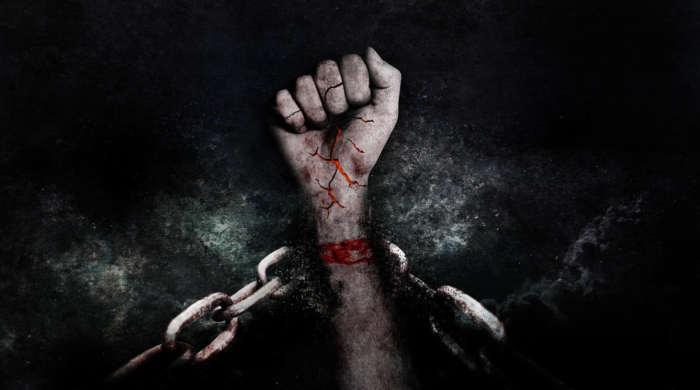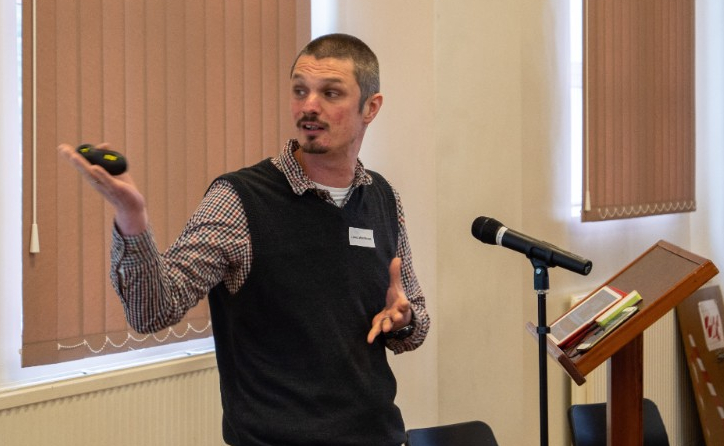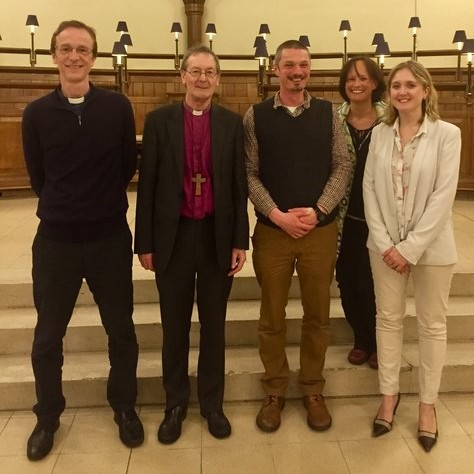Tackling modern slavery: a partnership approach
It is only by working together to share learning and good practice that we will see an end to the evil of slavery in our communities, writes James Henderson

Sienna's story
I have been involved in partnering with others to end of modern slavery for years now, but the individual cases still shock and disturb me. Talking to police colleagues at a recent training session, I heard about ‘Sienna’ (not her real name). She was a young lady - a British citizen, trafficked from London to the West Midlands where I work. She had faced a stark and impossible choice - the threat of bring raped by 25 men (known for their history of gang violence) or being forced to smoke heroin. She chose the heroin and the traffickers used this addiction to keep her in sexual exploitation. Her addiction was so strong that she couldn’t leave.
This is an upsetting and graphic example of the psychological shackles that traffickers use to keep people trapped so they can’t escape. Another is the way they totally strip victims of their humanity, with gangs involved in forced labour often referring to their slaves as ‘horses’, who can be bought, used, and sold on again.
Modern slavery – or human trafficking - is the movement of a person from one place to another into conditions of exploitation, using deception, coercion, abuse of power or the abuse of the person’s vulnerability. It can involve forced labour, domestic servitude, sexual exploitation and child abuse and effects women and men, girls and boys, UK nationals and people trafficked from overseas. The research suggests there are 10,000 to 13,000 potential victims, but experts in the sector fear that the actual number maybe three times more.
Partnership is key to tackling modern slavery
I work for a charity called Transforming Communities Together. Our main partners are the Anglican Diocese of Lichfield and the Church Urban Fund, but we work a lot with churches of all denominations, as well as people of other faiths, councils, civic bodies and charities. We long to see all people and communities flourish and thrive and modern slavery is a huge barrier to this.
We believe that partnership is the main way to tackle this. Nationally we partner with the Clewer Initiative (www.theclewerinitiative.org). Locally we are Vice Chair of Wolverhampton Anti Slavery Partnership (WASP). Our involvement has led to increased collaboration between the church, police and statutory agencies. WASP works together across the city to raise awareness of modern slavery, support victims and share intelligence. As a result, up to 12 churches across Wolverhampton have been recruited to be on standby to act as reception centres for potential victims of modern slavery.
This was such a great witness to our community partners about how the church practically cares for and loves their neighbours. This partnership approach to tackling modern slavery is now being replicated in other areas of the West Midlands, which is very exciting.
Putting faith into action
 As a Baptist, it is really important to me to put my faith into action. I constantly wrestle with Jesus’ words in Matthew 25. Jesus is inviting us to be an active part of extending his Kingdom. For me, this means communities where people are loved and valued as people in His image and not traded, imprisoned, abused and exploited.
As a Baptist, it is really important to me to put my faith into action. I constantly wrestle with Jesus’ words in Matthew 25. Jesus is inviting us to be an active part of extending his Kingdom. For me, this means communities where people are loved and valued as people in His image and not traded, imprisoned, abused and exploited.
The church locally is doing great work, partnering together across denominations to practically love and supporting people. Imagine if these volunteers were all trained to look out for and report signs of modern slavery and that whole congregations could be slavery aware! This vision drives us forward in this work.
Indeed this has already started, with groups of local clergy and ministers being trained, alongside work based chaplains and volunteers running local food banks. With our partners, we are continually looking at different ways to raise awareness and bring home to people the reality of modern slavery in their community.
A recent example of this approach was working with St Peter's Church in Wolverhampton to host a public awareness event in the city centre. This highlighted the exploitation of people who are offered jobs in nail bars, as agricultural workers, in car washes and other areas.
Team Rector the Revd Preb David Wright said, 'It is important that the church is involved, on the basis that at the heart of the Christian message is the dignity and freedom of all individuals.
'Modern Slavery is a direct threat to that dignity and freedom and so as Christians we need to stand up to it and work to help those caught up in it.'
Social action and especially modern slavery work is a great way to bring Christians together across traditional geographical or denominational barriers. Recently we worked with church colleagues in Derby and Nottingham for a spiritual response to reboot ourselves and our colleagues after our sustained practical work.
In May Bishop Alastair Redfern, the Bishop of Derby (pictured, second left), hosted a tri-diocesan evening at Derby Cathedral called ‘Bread for the Wilderness’. We gathered together from across the dioceses for spiritual nourishment in a variety of styles. A series of six prayer stations around the Cathedral then enabled private contemplation and targeted prayer.

It is only by working together to share learning and good practice that we will see an end to the evil of slavery in our communities. I left the event profoundly moved once again by this horrific injustice but also re-energised to continue the fight and to continue to say ‘we see you’ to those trapped in modern slavery.
Breaking free image | Pixabay
James Henderson is Development Worker at Transforming Communities Together which is a partnership between Lichfield Diocese and the Church Urban Fund. Some of James's role is relating to responding to issues of Modern Slavery. He is the vice-chair of the area's Modern Slavery Partnership, and an area lead for the Clewer Initiative.
He is a member of Sutton Coldfield Baptist Church
Baptist Times, 20/08/2018